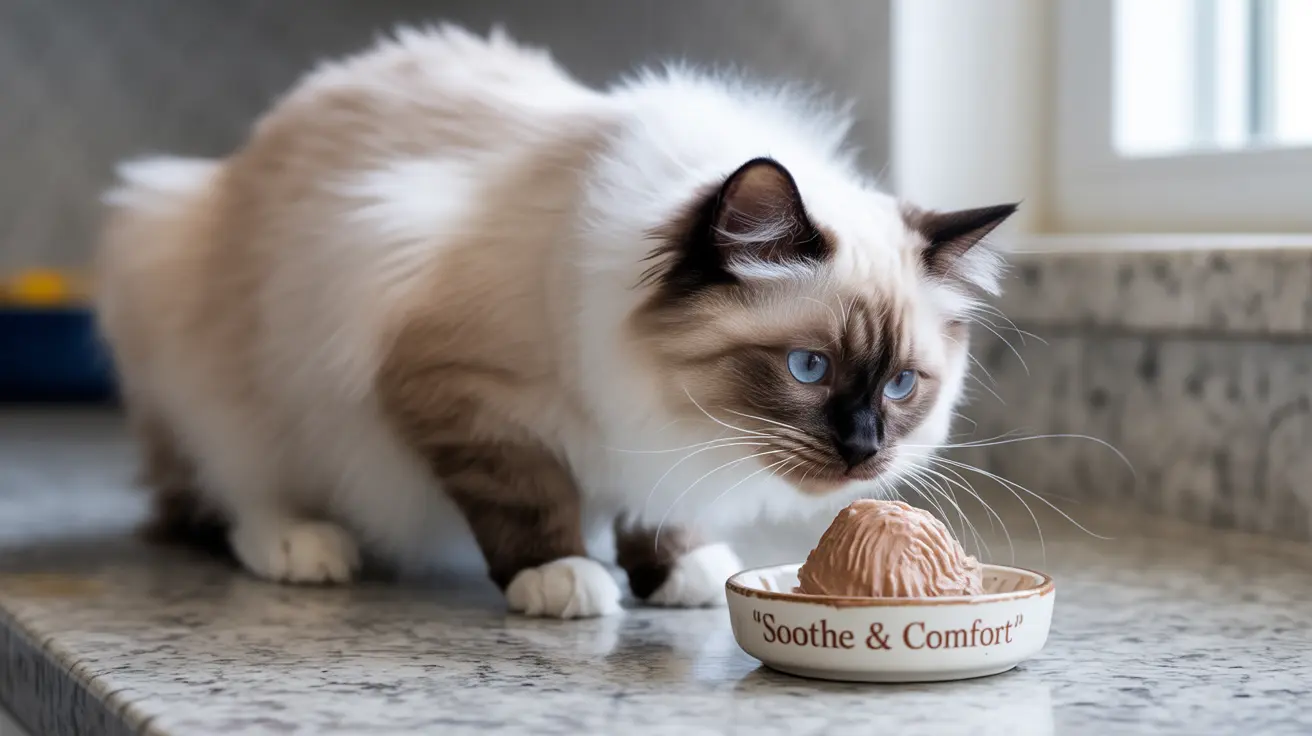When your feline friend experiences digestive issues, finding safe and effective natural antacids for cats can provide much-needed relief. Understanding which natural remedies work best and how to use them properly is crucial for helping your cat feel better while avoiding potential complications.
In this comprehensive guide, we'll explore veterinary-approved natural solutions for feline digestive issues, from herbal remedies to dietary adjustments that can help settle your cat's sensitive stomach.
Understanding Cat Digestive Issues
Before diving into natural treatments, it's important to understand what causes digestive problems in cats. Common triggers include:
- Dietary changes or food sensitivities
- Hairballs
- Stress or anxiety
- Inflammatory bowel disease (IBD)
- Gastritis
- Acid reflux (GERD)
Safe Natural Antacids and Remedies
Slippery Elm Bark
Slippery elm bark is one of the most effective natural antacids for cats. This herb contains mucilage, which creates a protective coating in the digestive tract and helps reduce inflammation.
To prepare slippery elm bark:
- Mix 1/4 teaspoon powder with warm water
- Create a smooth paste
- Administer before meals
- Give 2-4 hours away from any medications
Ginger for Nausea Relief
Ginger can help reduce nausea and vomiting in cats when properly prepared. Make a mild ginger tea by steeping fresh ginger root in hot water, then cooling and offering small amounts.
Dietary Modifications for Digestive Health
Simple dietary changes can significantly improve your cat's digestive health:
- Feed smaller, more frequent meals
- Choose easily digestible proteins
- Elevate food bowls to reduce reflux
- Consider a limited ingredient diet
- Ensure fresh water is always available
Probiotics and Digestive Enzymes
Supporting your cat's gut health with probiotics and digestive enzymes can help prevent and manage digestive issues. These supplements help maintain healthy gut flora and improve nutrient absorption.
When to Seek Veterinary Care
While natural remedies can be effective for mild digestive issues, certain symptoms require immediate veterinary attention:
- Vomiting lasting more than 24 hours
- Blood in vomit or stool
- Severe lethargy
- Loss of appetite
- Significant weight loss
- Signs of dehydration
Frequently Asked Questions
What are the safest natural antacids to help relieve my cat's acid reflux and vomiting?
The safest natural antacids for cats include slippery elm bark, marshmallow root, and small amounts of pure aloe vera gel. These should be used under veterinary guidance and given separately from medications.
How do I prepare and give slippery elm bark or ginger tea to soothe my cat's upset stomach?
For slippery elm, mix 1/4 teaspoon powder with warm water to form a paste. For ginger tea, steep fresh ginger root in hot water for 10 minutes, strain, cool, and offer small amounts. Always start with tiny doses to test tolerance.
Can dietary changes and natural supplements like probiotics reduce my cat's frequent vomiting?
Yes, dietary modifications and probiotics can help reduce vomiting episodes. Consider switching to easily digestible foods, feeding smaller portions more frequently, and adding a veterinary-approved probiotic supplement.
Are there natural remedies for cats that are effective alternatives to prescription antacids like Pepcid?
Natural alternatives include slippery elm bark, marshmallow root, and digestive enzymes. However, severe cases may still require prescription medication, so always consult your veterinarian first.
When should I stop home treatment and take my vomiting cat to the vet?
Seek immediate veterinary care if vomiting persists for more than 24 hours, contains blood, or is accompanied by lethargy, loss of appetite, or dehydration. Natural remedies should only be used for mild, occasional digestive issues.






